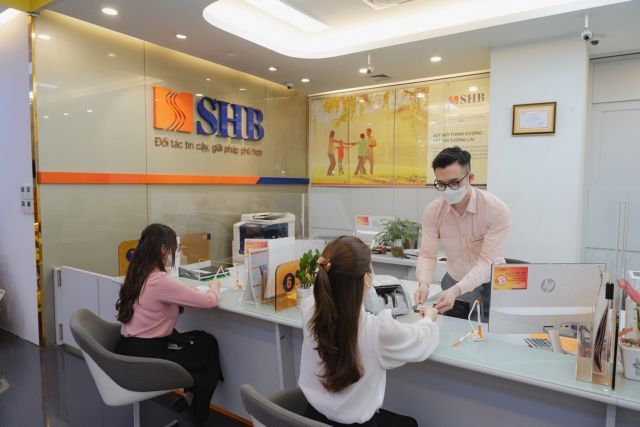Many stocks unexpectedly received a large amount of capital inflows from foreign investors, especially some banking stocks, even though the market went down in October.

Many stocks unexpectedly received a large amount of capital inflows from foreign investors, especially some banking stocks, even though the market went down in October.
According to data from the Ho Chi Minh Stock Exchange (HOSE), the total trading value of foreign investors accounted for more than 10.32 per cent, much higher than the 6-8 per cent months ago when the market went down. This number can partly explain the anxiety of individual investors when the market slumped, but the cash flow of foreign investors became more dynamic in the past month.
Statistics show that in October, foreign investors net sold US$81 million on HOSE, however, if Eximbank (EIB)'s sudden put-through transaction is not taken into account, foreign investors net purchased more than VND2 trillion, according to SSI Securities Co.
The inflow of foreign capital in October came mostly from ETFs and active investment funds in the market.
ETFs net bought about $41 million, mainly from Fubon FTSE Viet Nam ETF ($35 million) and VanEck Viet Nam ETF ($6 million). Year-to-date, net inflows from ETFs were $371 million, of which Fubon net bought $288 million, according to SSI.
“October is considered one of the successful months for ETFs with a total net inflow of up to VND3.13 trillion, the second highest since the beginning of 2022 (only after May). Accumulated from the beginning of this year, ETFs have attracted VND11.4 trillion," SSI said.
Similarly, cash flow from active funds was more positive in October. According to SSI's assessment, active funds disburse more cautiously than ETFs but are more active at the end of the month. The total net inflow was nearly VND700 billion, the highest level since July 2021, and helped narrow the net withdrawal since the beginning of this year to just over VND1.3 trillion.
“The cash flow movement of investment funds into the stock market in October was more positive than expected, after the sharp decline of the market caused by internal unexpected factors,” SSI said in its report.
The more positive movement of foreign investors occurred in the context that the VN-Index fell again to below 1,000 points after two years.
The VN-Index in October fell by 9.2 per cent compared to the previous month, and October was the second consecutive month of decline in the context of rising operating interest rates and a slowdown in the corporate bond market.
According to general statistics, the beverage industry was the only gainer group in the past month, with an increase of 5.1 per cent over the previous month thanks to foreign capital inflows.
On the contrary, the groups that fell sharply were mainly related to the real estate sector and financial sector due to the influence of macro factors.
According to SSI, foreign investors have been actively net buying into industry groups with basic fundamentals and positive outlook, but valuation is somewhat strongly influenced by market movements such as retail essential goods and banking products.
Among these, banking stocks were a highlight in October with many notable developments.
According to KTSG Online's statistics, in October, among banking stocks, the stocks that were bought the most and with the largest volume of matched orders on the floor were Saigon-Hanoi Bank (SHB), equivalent to more than 14.7 million shares, followed by Vietinbank (CTG) with more than 5.8 million shares, and Vietinbank (VCB) with more than 3.5 million shares. In terms of net matched value, Vietcombank (VCB) took the lead with VND244 billion due to its large market price, followed by Saigon-Hanoi Bank (SHB) with more than VND150 billion and Vietinbank (CTG) with VND124 billion.
On the other side, the stock that was sold the most was Sacombank (STB), up to 29.8 million shares with a value of more than VND520 billion.
In the whole third quarter, SHB still leads the net buying volume with a total net buying value of nearly 26 million shares in four consecutive months, followed by HDBank (HDB) with more than 19 million shares.
Banking stocks have also fallen in recent years because of the general influence of the market and direct macro factors such as interest rates and exchange rates. However, in October, when the market price dropped, bottom-fishing demand appeared and many banking stocks recovered significantly.
In fact, there has been a lot of supportive information that helped the bank's stock price recover at the end of October. By the end of the trading session on November 7, many bank stocks increased in price on a weekly basis such as MSB (up 5 per cent), TCB (up 5 per cent), VPB (4 per cent), and SHB (up 2 per cent).
Saigon-Hanoi Bank (SHB) is a bank stock that has been noticed by foreign investors recently, especially some ETFs that have continuously increased their holdings. According to recent forecasts and estimates of SSI, funds may increase the volume of SHB shares in the portfolio in the near future.
In general, from the perspective of ETFs, the selection of bank stocks added to the portfolio is based on the criteria of market capitalisation, liquidity and financial factors, which can represent industry developments.
In 2023, foreign investors also assessed the potential of bank stocks from the more allowed rooms for foreign investment and new strategic shareholders.
The prospect of the Vietnamese stock market in the long term is still promising, and is a factor supporting the trend of cash flow into the market, at least in November. “However, in the case of macro risks increases, the investment cash flow will quickly reverse to withdraw capital from Viet Nam," the SSI report said. — VNS





